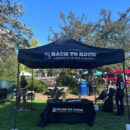
Craigslist has long since replaced telephone poles as the spot where most bands advertise open slots that need to be filled by new guitarists, bassists or drummers. But will a new social media network for musicians and bands soon replace Craigslist in this space?
Free website Gigmor connects like-minded musicians similar to how OKCupid and eHarmony match lonely hearts, using a unique formula that takes into account genre, instrument, playing level, geography and other metrics. Musicians and bands can then start dialoguing, or set a time and place to jam or record together, potentially leading to many happy marriages.
Santa Monica, CA-based Gigmor graduated from beta in fall 2013, when it had a handful of musician and band profiles, and has since grown that number into the mid-five figures, according to founder David Baird. Like the head of any promising startup, Baird has a lofty vision for his company: revolutionizing how live music is booked.
“Our big-picture vision is that we want to be a booking site for venues and bands that matches gigs of any kind,” he says. “We’re working with some local venues in Los Angeles and San Diego to create a marketplace for live music acts.”
Baird served as the head of e-commerce for AOL from 1995 to 2001, developing online marketing programs to drive the growth of online shopping, stock trading and online banking, according to his LinkedIn profile. He later founded Troubadour Digital Media, an agency that offered design, development, search engine optimization, social media and content management services.
Before putting that project on the back burner, Baird—himself a musician—launched Gigmor after struggling to find compatible players.
“I went on Craigslist and hit so many dead ends with phone calls and exchanging MP3s,” he recalls. “I realized musicians at all levels have the same problem.”
The solution, Baird hopes, is Gigmor, where a band can set up a profile, define one or more instruments they’re looking for, and receive matches accordingly. The matching technology can be extended to events with a time and place, such as a jam, a gig or a recording session.
User profiles are viewable to the public. They contain a bevy of information, ranging from a basic description to more specific data like the kind of music the user prefers to play, their genres of choice, their instrument, their playing level and their goals. Profiles also show jams that the musicians and bands are organizing and attending, and their upcoming shows too.
Users can post photos and videos, while a sidebar lists other users they’re following, as well as users tagged as “fans.” An activity feed chronicles everything the user has done on the site.
Gigmor’s direct competition is BandMix, a classified ad hub that launched in 2003 and also uses a profile system to connect musicians. But Baird says Gigmor has a superior matching formula—a special sauce whose recipe he, of course, refuses to divulge.
So far, Gigmor has generated roughly 150,000 matches, according to Baird. While there’s no way to tell how many of those matches have resulted in musicians and bands playing together offline, he says many have sent along their thanks.
About 60 percent of Gigmor’s member base is professional or semiprofessional, so the site tends to attract more serious musicians, Baird says. The most popular genre is rock, but the social media network is also home to singer/songwriters looking for backing musicians and EDM DJs who need vocalists.
Gigmor is available in 40 countries, however matching only occurs in the U.S. and Canada at present, according to Baird.
“Our focus in terms of audience growth is North America, as we haven’t incorporated the international zip code data into the matching engine,” he says. “It’s not the biggest project but requires a certain critical mass that we have in North America. Right now there are a couple of dozen people in France, let’s say, they’re not going to get good matches.”
In addition to expanding its international reach, Gigmor is also planning to launch a mobile app. The company is a small operation employing four full-time staffers and a handful of freelance developers, but it is planning to close a seed round in the fall, according to Baird.
“We’re looking to create metrics that have value to talent buyers that help them filter out from the hundreds of requests they get every day what the best bands are that would work in their club from an audience-draw perspective,” he says.
Baird asserts that Gigmor is increasingly drawing the interest of talent buyers and other industry figures who are posting calls for players and bands that meet their criteria for specific gigs and festivals. If that trend continues, it could help him realize his ultimate dream for the site.
See gigmor.com.
By Kurt Orzeck








